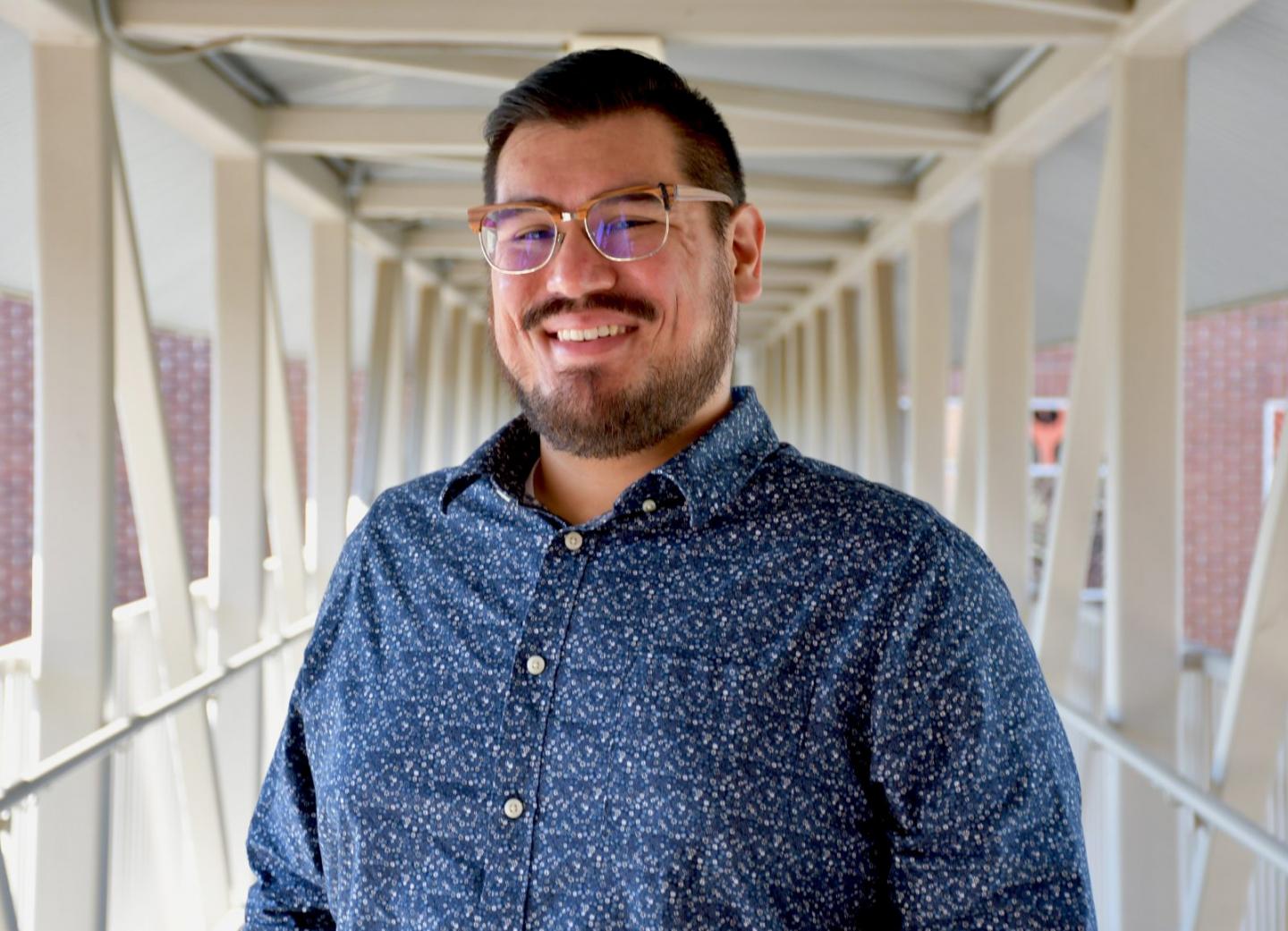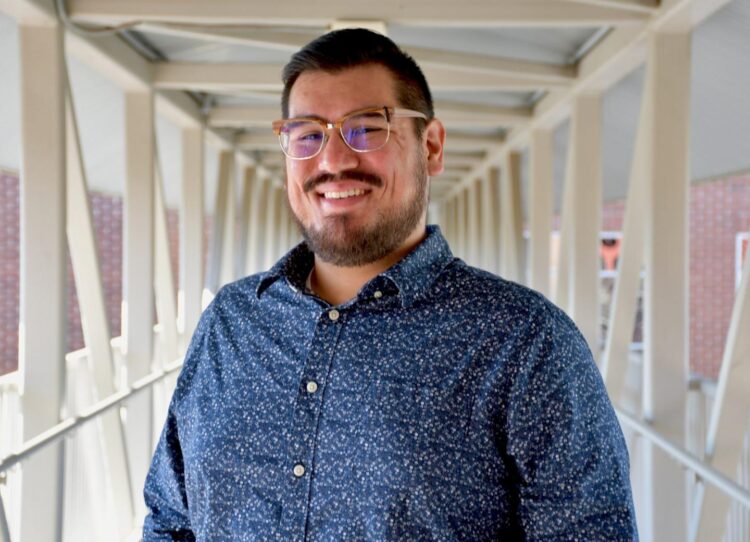
Credit: Virginia Tech
Raymundo Hernandez was always drawn to psychology – that is, until he took his first neurobiology class as an undergraduate.
“Thought, choice, autonomy – I remember being struck by the fact that these concepts we discuss a lot in psychology are fundamentally just brain cells communicating with each other,” said Hernandez, a fourth-year graduate student in Virginia Tech’s Translational Biology, Medicine, and Health (TBMH) Graduate Program.
“Suddenly all I wanted to learn about was how brain cells give rise to thoughts and behavior, and how understanding their biology can improve human health.”
Now, Hernandez, a first-generation university student, has been awarded a competitive six-year $466,669 National Institutes of Health grant that will fund his remaining doctoral and postdoctoral research into how the brain’s intricate lattice of cells matures.
In particular, Hernandez and his mentor, Michelle Olsen, associate professor and director of graduate studies in Virginia Tech’s School of Neuroscience, are investigating how a specific molecule – brain-derived neurotropic factor (BDNF) – controls key aspects of healthy brain development.
“Receiving this award is a major accomplishment for Ray and will set him up for success in the years to come. Not only does it show what tremendous potential Ray has for a career in science, it also speaks to the wonderful mentorship he has received from Dr. Olsen, the strength of the TBMH graduate program, and the strength of the growing neuroscience community here at Virginia Tech,” said Michael Fox, director of Virginia Tech’s School of Neuroscience and a professor at the Fralin Biomedical Research Institute at VTC.
Over the next two years, Hernandez will map out the downstream chemical reactions that occur when BDNF is absent or unable to bind to astrocytes, a type of brain cell that helps neurons stay healthy and function properly.
Previous studies have shown that the molecule plays a key role in organizing neuronal circuits, but Hernandez and Olsen are among the first to look at how BDNF influences astrocyte development. In 2019, Olsen’s lab published a study in eLife describing how loss of a BDNF receptor molecule in astrocytes caused the star-shaped glial cells to shrink by 30 percent.
“Many neuropsychiatric disorders are related to a lack of this protein,” Olsen said. “By generating a signaling map to fully appreciate the downstream consequences, we move closer to identifying strategies to therapeutically intervene.”
In the lab, Hernandez and Olsen study mouse models of Rett syndrome, a rare disease that affects roughly 1 in 10,000 girls. Babies with the condition develop normally for the first few months after birth, before developing severe cognitive impairments, such as loss of speech and motor skills.
Hernandez said this model is ideal for studying problems with BDNF levels in the brain.
“Humans and mice with Rett syndrome lack this growth factor, which we believe could be causing the improper neuronal development and lack of morphological complexity both neurons and astrocytes need to maintain proper signaling,” Hernandez said.
Hernandez expects to defend his doctoral dissertation in 2023 and pursue a postdoctoral fellowship in a laboratory that specializes in studying neurons. He said this grant is a “dream come true.”
“Coming from a non-college background, I am honored to secure this funding to advance my career as a postdoc, and eventually a primary investigator,” Hernandez said.
He grew up in California and completed his undergraduate degree at Arizona State University before pursuing his doctorate at Virginia Tech.
# # #
###
Media Contact
Whitney Slightham
[email protected]
Original Source
https:/





